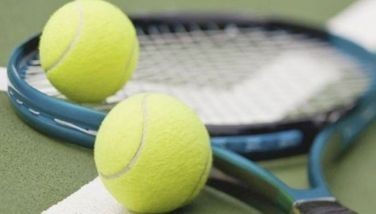Asi, Peña test positive for drugs
February 26, 2003 | 12:00am
 PBA physician Ben Salud confirmed the results after mandatory hepatitis tests conducted by the Games and Amusement Board before the start of the 2003 PBA season.
PBA physician Ben Salud confirmed the results after mandatory hepatitis tests conducted by the Games and Amusement Board before the start of the 2003 PBA season.
The results at first took PBA officials by surprise. The PBA could not make an outright decision on what penalty to impose on the erring players, this being the first time a local player had been found to have taken a banned substance.
Under PBA policies, a player who tests positive for any of the banned substances will be required to undergo rehabilitation. This will require the player to take a leave from his team. A second offense would result in a permanent ban on the player.
The incident reportedly prompted PBA commissioner Noli Eala to convene his staff this morning in an emergency meeting. Eala was not available for comment.
Taulava is to banner the Talk N Text team as it opens its campaign in the Samsung PBA All-Filipino Cup versus Shell at 5 p.m. today at the Philsports Arena. Peña and his San Miguel teammates make their own debut in the tournament against the Coca-Cola Tigers on Friday at the Makati Coliseum.
The Commissioner’s Office is reportedly in a quandary on what to do with Taulava and Peña since their case is unprecedented in the 29-year history of the league.
Taulava and Peña were found to have traces of marijuana in their urine sample during the mandatory test for hepatitis reportedly conducted by the PBA under the direction of the GAB about two weeks ago.
But separate tests undergone by the two players days later showed negative results.
Talk N Text and San Miguel officials said the GAB had issued playing licenses to Taulava and Peña.
The PBA has its own drug test but this is conducted on a random basis during playdates. A number of imports have flunked the test but not a single local player tested positive.
Two Purefoods Hotdogs and two San Miguel Beermen were found to have hepatitis.
Professional leagues like the Major League baseball in the United States had started drug tests on players this season. The International Olympic Committee, which is at the forefront of a move to completely ban the use of power-enhancing drugs as well as depressants, has relentlessly implemented its drug policy on all Olympic athletes worldwide.
BrandSpace Articles
<
>
- Latest
- Trending
Trending
Latest
Trending
Latest
Recommended


























